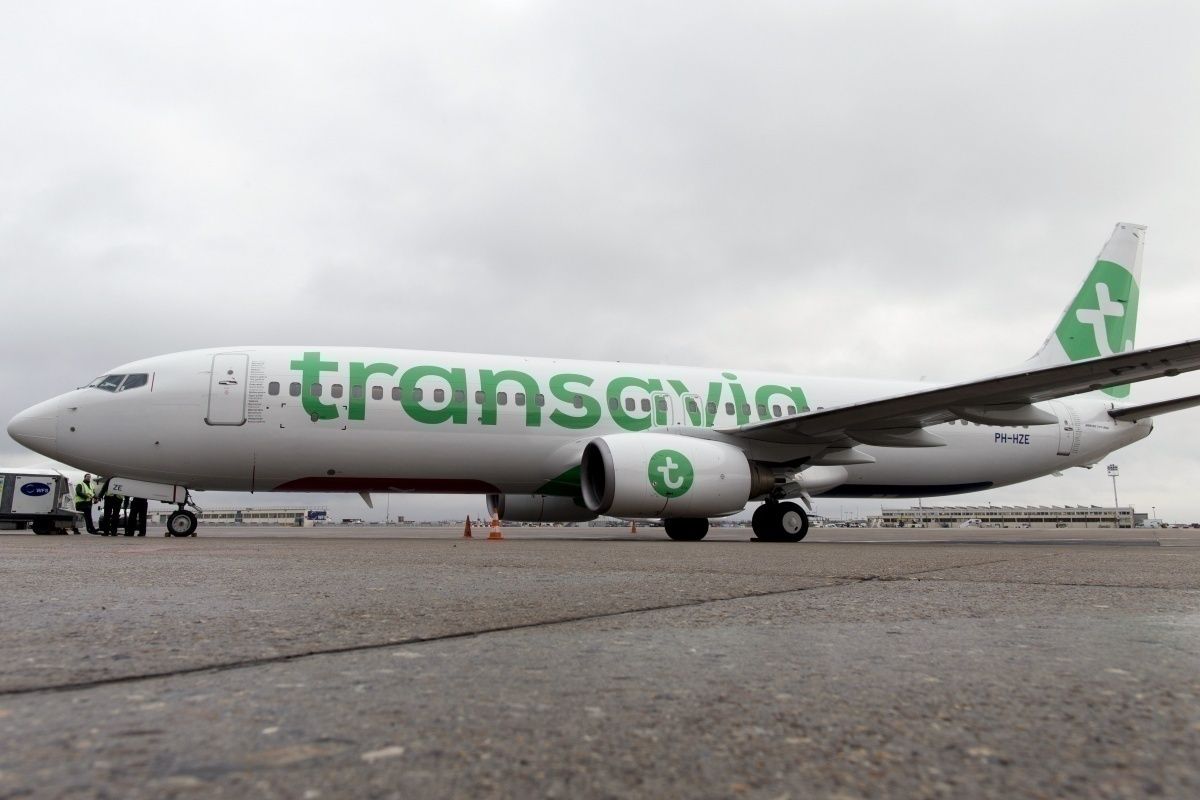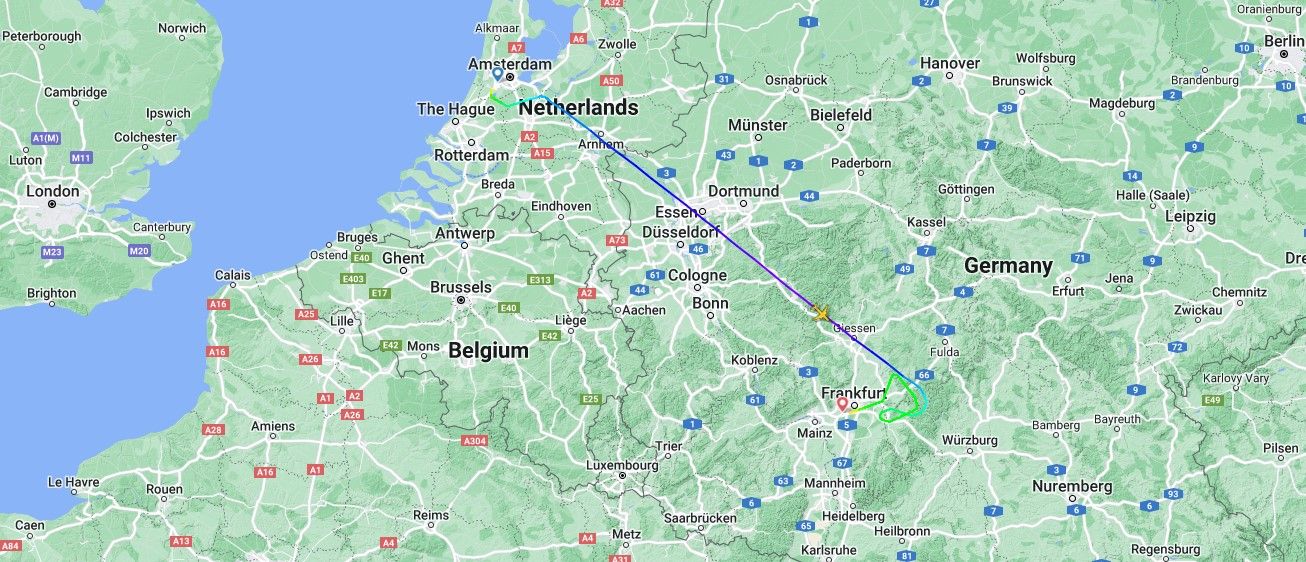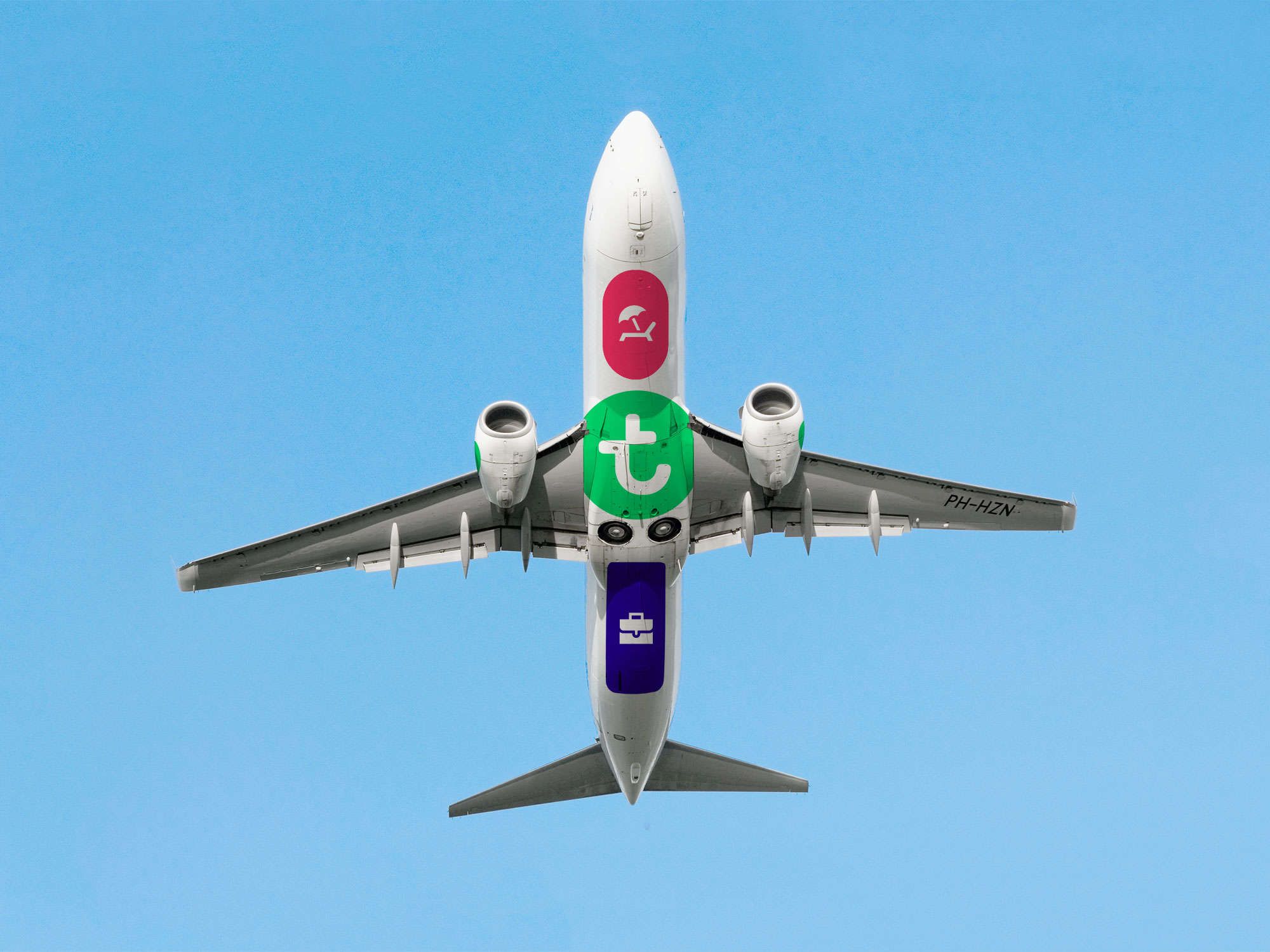Earlier this week, a Transavia Boeing 737-800 found itself in unfamiliar territory when a diversion saw it touch down at Germany's largest and busiest airport. The Tel Aviv-bound twinjet reportedly diverted to Frankfurt after experiencing cabin pressure issues. Let's take a look at how exactly the incident unfolded.
Unplanned stopover
The flight in question was Transavia flight HV5801, which originated at the Dutch low-cost carrier and KLM subsidiary's base at Amsterdam Schiphol Airport (AMS). According to data from FlightRadar24.com, its departure on Monday, October 3rd was just under half an hour behind schedule, leaving at 06:41 rather than 06:15.
However, the delay to the service was about to become significantly more severe. According to the Aviation Herald, the flight was cruising over Germany at 35,000 feet when it suddenly entered an emergency descent. The reason for this maneuver, which took place when the flight was around 40 NM (74 km) north of Frankfurt, is said to have been a loss of cabin pressure. The descent began at 07:05.
The situation prompted a diversion to Frankfurt Airport (FRA), where the flight touched down just over half an hour later, at 07:36 local time, on the facility's 4,000-meter-long runway 25C. With its planned destination having been Ben Gurion Airport (TLV) in Tel Aviv, Israel, the flight's passengers still had a long way to go.
Get the latest aviation news straight to your inbox: Sign up for our newsletters today!
Sourcing a replacement aircraft
The nature of the incident that prompted the diversion of flight HV5801 to Frankfurt meant that the aircraft operating the flight, a Boeing 737-800 registered as PH-HXB, had to be taken out of service. However, Transavia persevered in getting the passengers to their destination and eventually found a replacement aircraft.
This came in the form of another Boeing 737-800, which bore the registration PH-HXK. This twinjet flew in from Amsterdam as flight HV71 and touched down at 13:02 local time. However, the turnaround wasn't the fastest in the world.
Indeed, it would be another three-and-a-half hours before it returned to the skies, eventually departing Frankfurt for Tel Aviv at 16:33. By this time, the diverted passengers had already been on the ground in Germany for almost nine hours. After just under three-and-a-half hours of flight, the flight touched down in Tel Aviv just over nine hours late (vs its scheduled 11:50 arrival) at 21:00 local time.
Check out all the latest European aviation news here!
Back home
The aircraft that initially suffered the issues that caused the flight's diversion to Frankfurt (PH-HXB) had to stay on the ground in Germany for three days.
Data from FlightRadar24.com shows that it left Frankfurt yesterday at 19:07 as flight HV79, and it touched down back home at Amsterdam Schiphol Airport just under an hour later, at 20:04. Regarding this departure, a spokesperson for Transavia explained to Simple Flying that "it took a long time before the aircraft could leave Frankfurt yesterday due to problems with handling on site."
Data from ch-aviation.com shows that PH-HXK has the same all-economy, 189-seat configuration as PH-HXB, making it an ideal candidate to be a replacement aircraft. They joined Transavia just over a year apart, in March 2016 (PH-HXB) and April 2017 (PH-HXK) respectively. The former has spent its entire career at the airline, but the latter also served GOL from November 2019 to March 2020.
What do you make of this incident? Have you ever been on a flight that has had to divert due to cabin pressure issues? Let us know your thoughts and experiences in the comments.
Sources: Aviation Herald, ch-aviation.com, FlightRadar24.com



